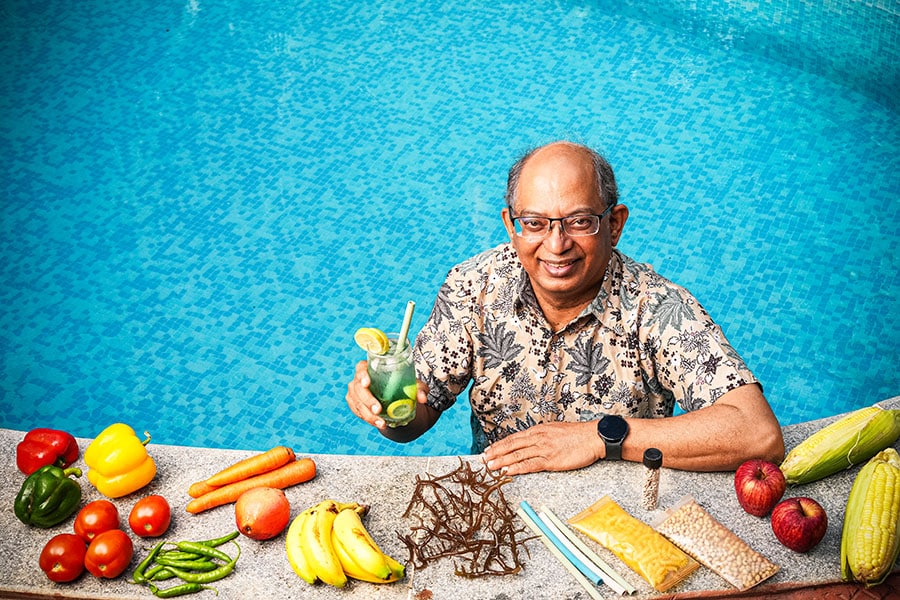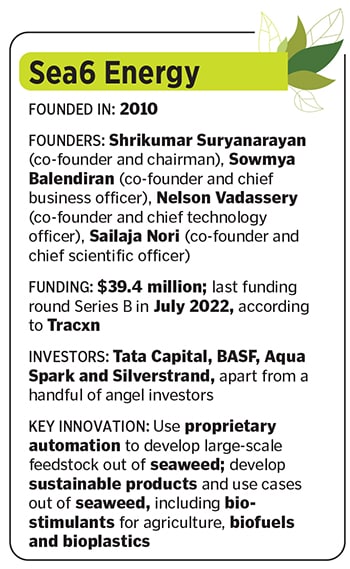
Sea6 Energy: Farming the ocean, and exploring the possibility of making crude oil from seaweed
The Bengaluru-based startup uses proprietary automation to develop a large-scale feedstock of seaweed, which has the potential to replace fossil fuels in applications ranging from transportation to agriculture. It is now attempting to produce biofuels and bioplastics
 Shrikumar Suryanarayan, co-founder and MD of Sea6 Energy Pvt. Ltd.
Image: Selvaprakash Lakshmanan for Forbes India
Shrikumar Suryanarayan, co-founder and MD of Sea6 Energy Pvt. Ltd.
Image: Selvaprakash Lakshmanan for Forbes India
India has a high dependence on crude oil—it’s the third-highest importer in the world after the US and China. According to a July 25 report in the Economic Times, India imported $31.4 billion worth of crude oil in the April-June quarter, about 60.1 million metric tonnes in volume.
There is no easy alternative to the versatile crude oil, which powers our industry and energy needs ranging from transportation to textile, but which also releases a huge amount of carbon dioxide that traps heat and contributes to global warming.
A Bengaluru-based startup launched by a biotechnology research veteran from Biocon and three engineering graduates from the Indian Institute of Technology (IIT)-Madras is contributing to the solution by farming the ocean. Sea6 Energy is developing a large-scale sustainable alternative feedstock of seaweed, which “can potentially replace everything that we do today with crude oil”, says Shrikumar Suryanarayan, co-founder and chairman.
In the past 13 years since the startup was founded, it has been working on two broad areas: First, large-scale seaweed production by developing automation, and second, converting this seaweed into useful products that have applications across various sectors.
 Growing seaweed—which absorbs carbon dioxide as it grows, transforming it into biomass—is traditionally a labour-intensive process restricted to shallow waters, which makes it cost-ineffective. Sea6 has been inventing and scaling up machinery to counter these issues. It has a patent on a seaweed farming system, Suryanarayan says, which includes a tractor that automates the process of seaweed seeding and harvesting. There are also large-scale girds that float on the ocean surface, which can withstand rough waves on which seaweed can be grown.
Growing seaweed—which absorbs carbon dioxide as it grows, transforming it into biomass—is traditionally a labour-intensive process restricted to shallow waters, which makes it cost-ineffective. Sea6 has been inventing and scaling up machinery to counter these issues. It has a patent on a seaweed farming system, Suryanarayan says, which includes a tractor that automates the process of seaweed seeding and harvesting. There are also large-scale girds that float on the ocean surface, which can withstand rough waves on which seaweed can be grown.








